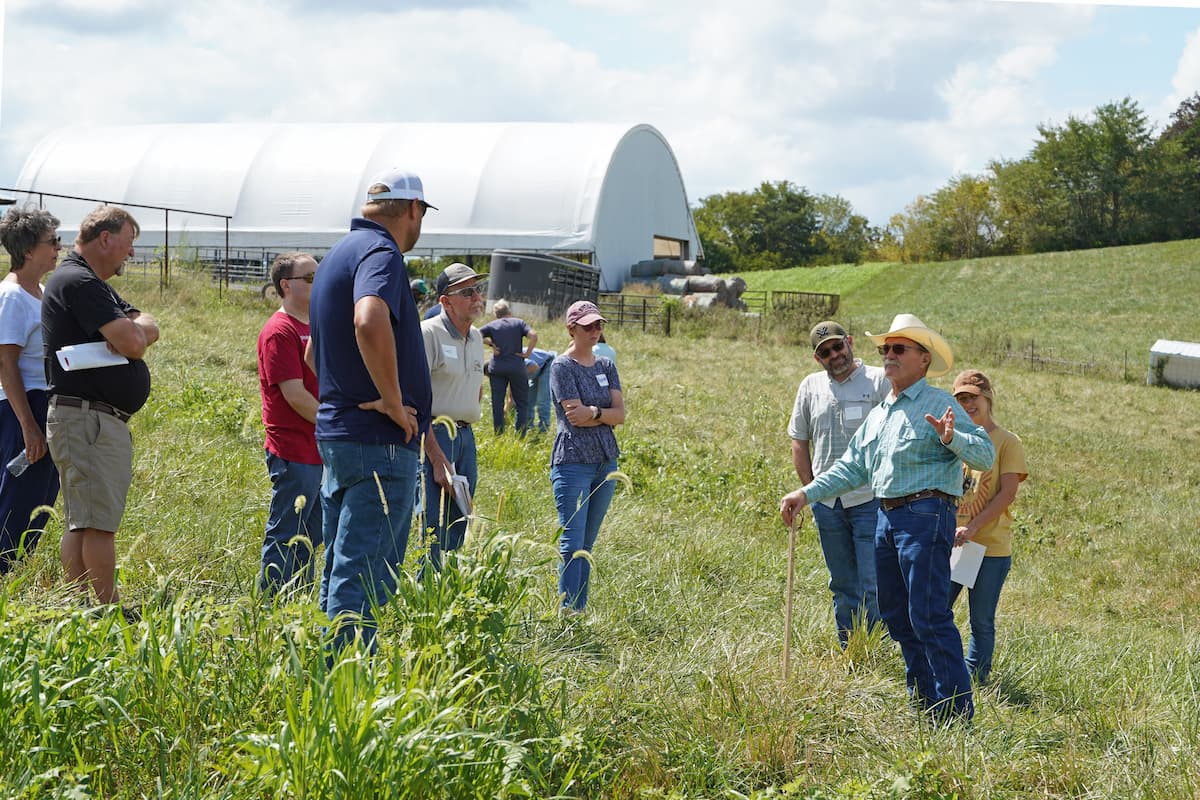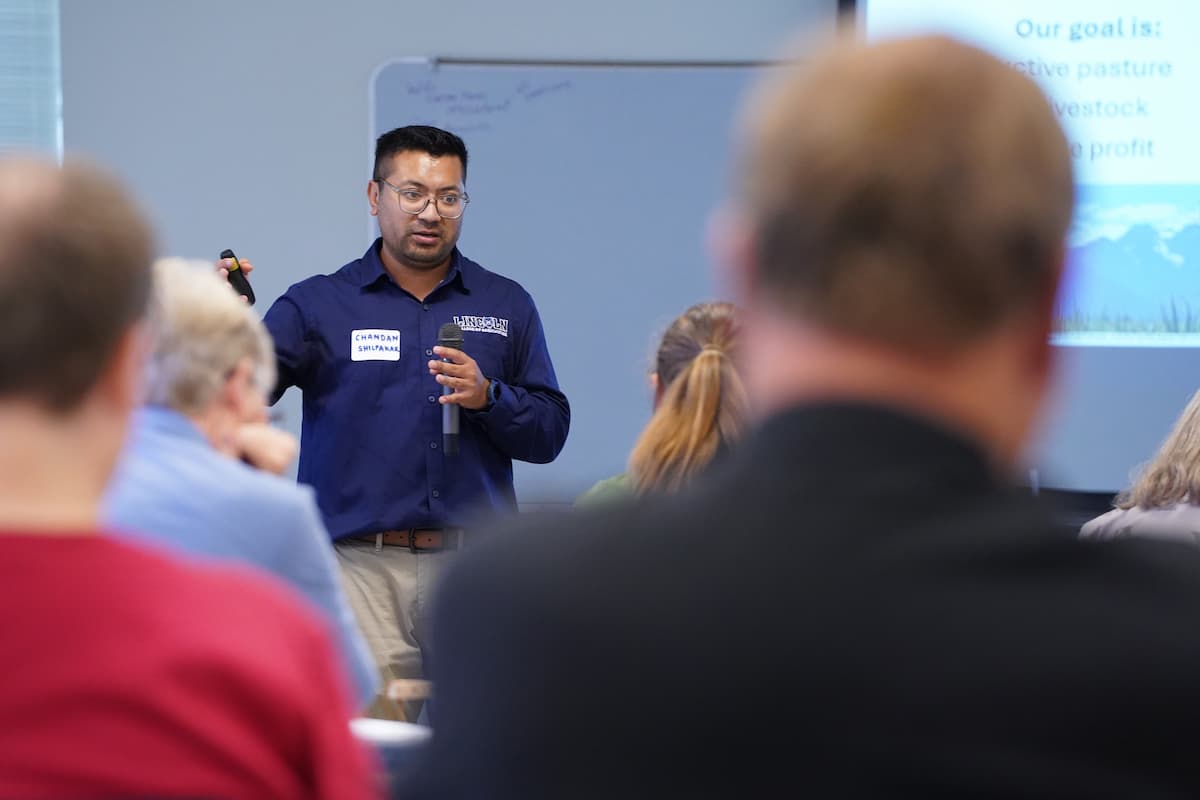Small Ruminant Field Day Highlights Grazing, Veterinary Care
Office of Communications and Marketing
Young Hall
820 Chestnut Street
Jefferson City, MO 65101
 Mark Green demonstrates the use of the pasture stick to a small group of workshop attendees.
Mark Green demonstrates the use of the pasture stick to a small group of workshop attendees.
Farmers and small livestock producers recently gathered for Lincoln University of Missouri’s (LU) Small Ruminant Field Day — an event focused on improving grazing techniques and veterinary care for goats and sheep.
Missouri ranks second in the nation for goat meat production, making small ruminant management an important topic for local producers.
The event, held on August 22, featured demonstrations and presentations from experts, including Dr. Homero Salinas-Gonzalez, Dr. Chandan Shilpakar, Mark Green and Dr. Christopher Baughman.
Participants learned about pasture management, electric fencing and veterinary practices for small ruminants. The event included an outdoor demonstration on how to use a pasture stick — a simple tool used to determine when to rotate animals to a new section of land, or paddock.
“The pasture stuff, I'd like to improve. We have a real small operation, but [we’re] trying to improve it,” said Randy Knotts, who attended the event with his wife, Kathy. The couple operates a three-acre farm near Liberty, Missouri.
 Dr. Chandan Shilpakar speaks to attendees about the advantages of using GPS and drones in farming.
Dr. Chandan Shilpakar speaks to attendees about the advantages of using GPS and drones in farming.
Speakers also discussed the use of electric fencing as a cost-effective method to manage grazing areas. Like a dog’s shock collar, electric fences serve as both a physical and psychological barrier, allowing producers to divide large pastures into smaller sections using easily transported supplies.
Baughman emphasized the importance of veterinary-client relationships and explained Extra Label Drug Use — when medication is used for a purpose not listed on its label. Federal law requires a veterinarian to prescribe drugs when they’re to be used in this way, and their use often means a longer withdrawal period before the animal can be processed.
“Some of the [medications] that are approved, [if] you're not going to use them how they say, or they haven't been proven to work for the reason you want them … you need a veterinarian to say, ‘Yes, you can use it. Here's the dose you use it at, and your withdrawal period is ‘X,’” Baughman said.
Salinas said he felt encouraged by the turnout and the enthusiasm of attendees. Some participants told him they learned a lot. A few who had never attended an LU event before were surprised by the amount of information provided, which he found encouraging.
“To have all those people that came here for the field day be very interested in the talks, that is motivation for me,” Salinas said.
Click here for more information on the small ruminant program at Lincoln University.
